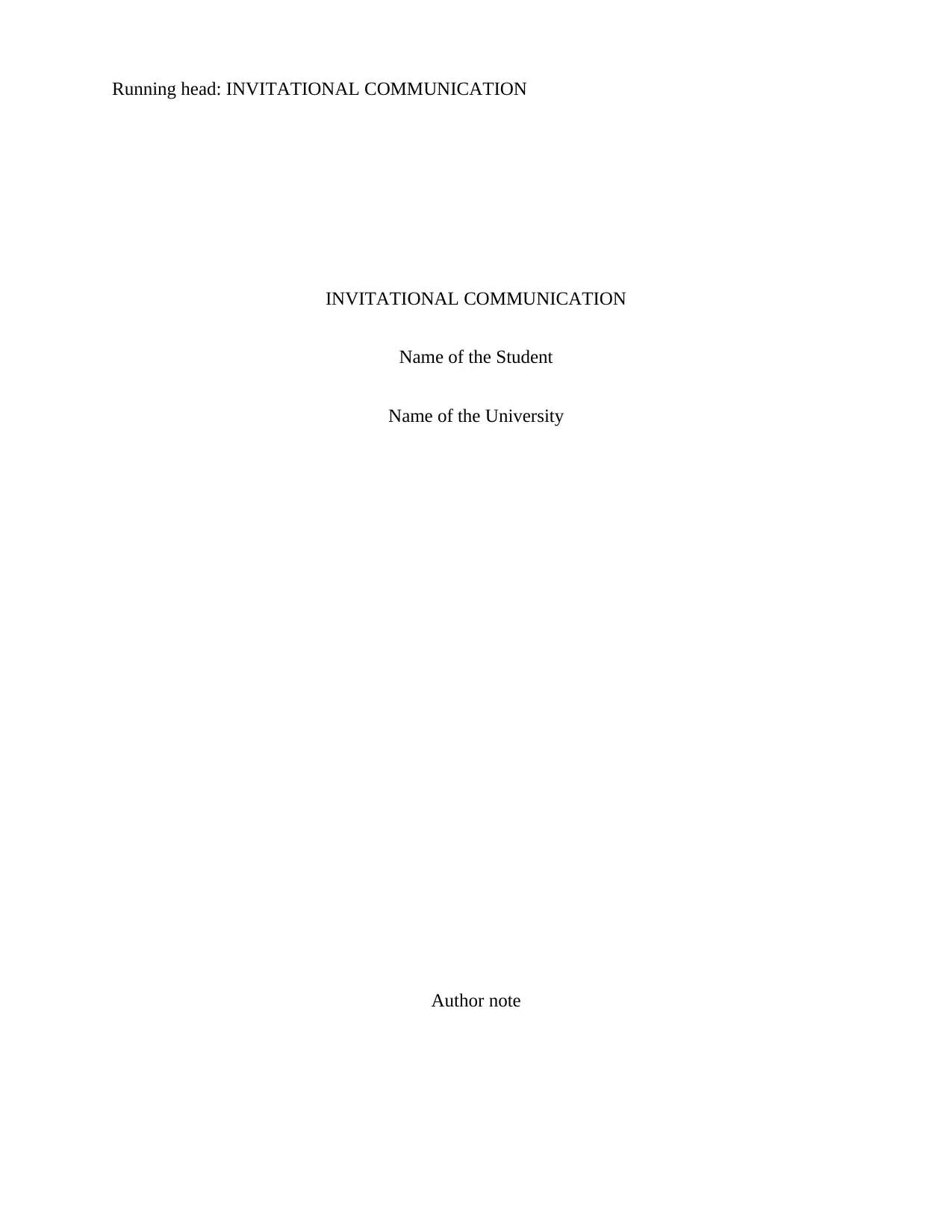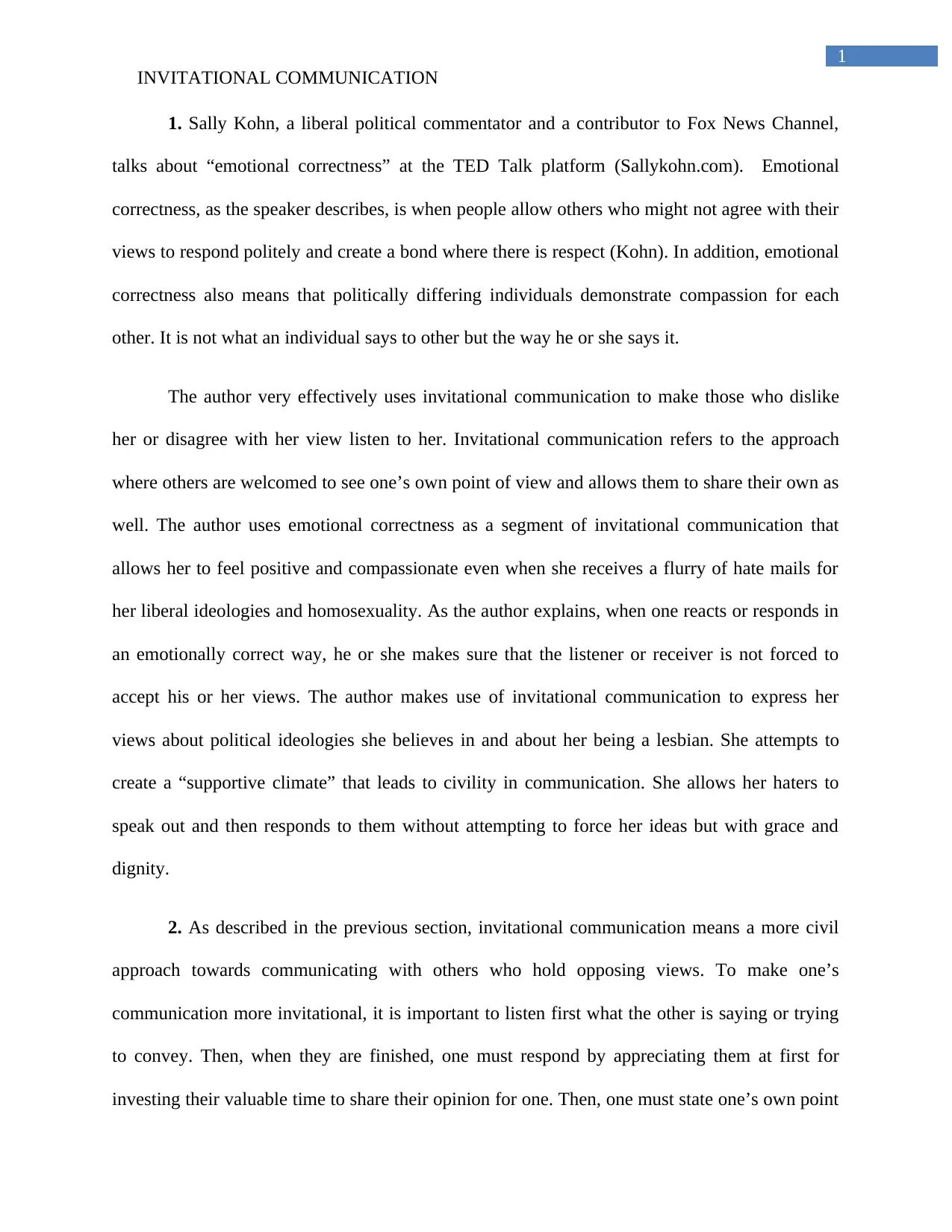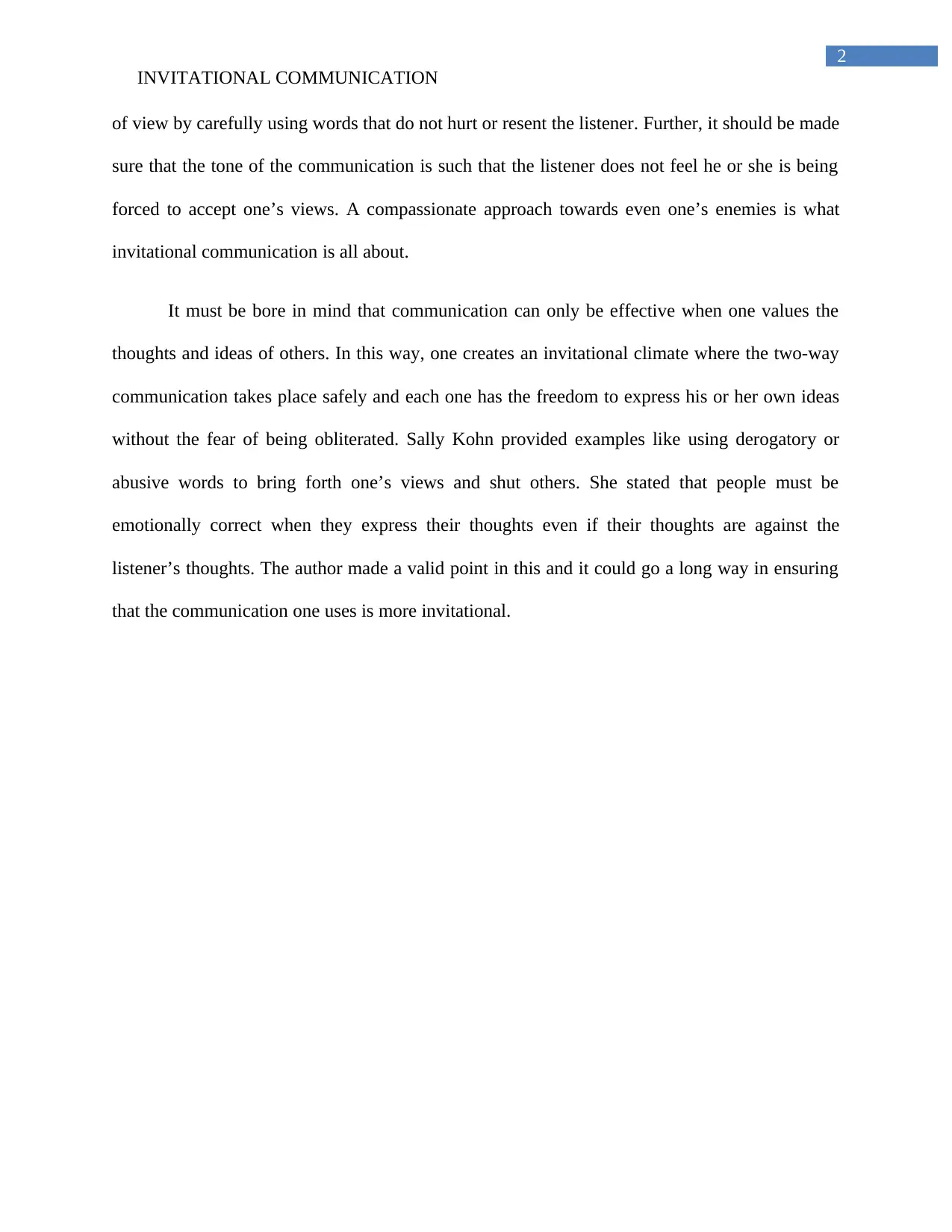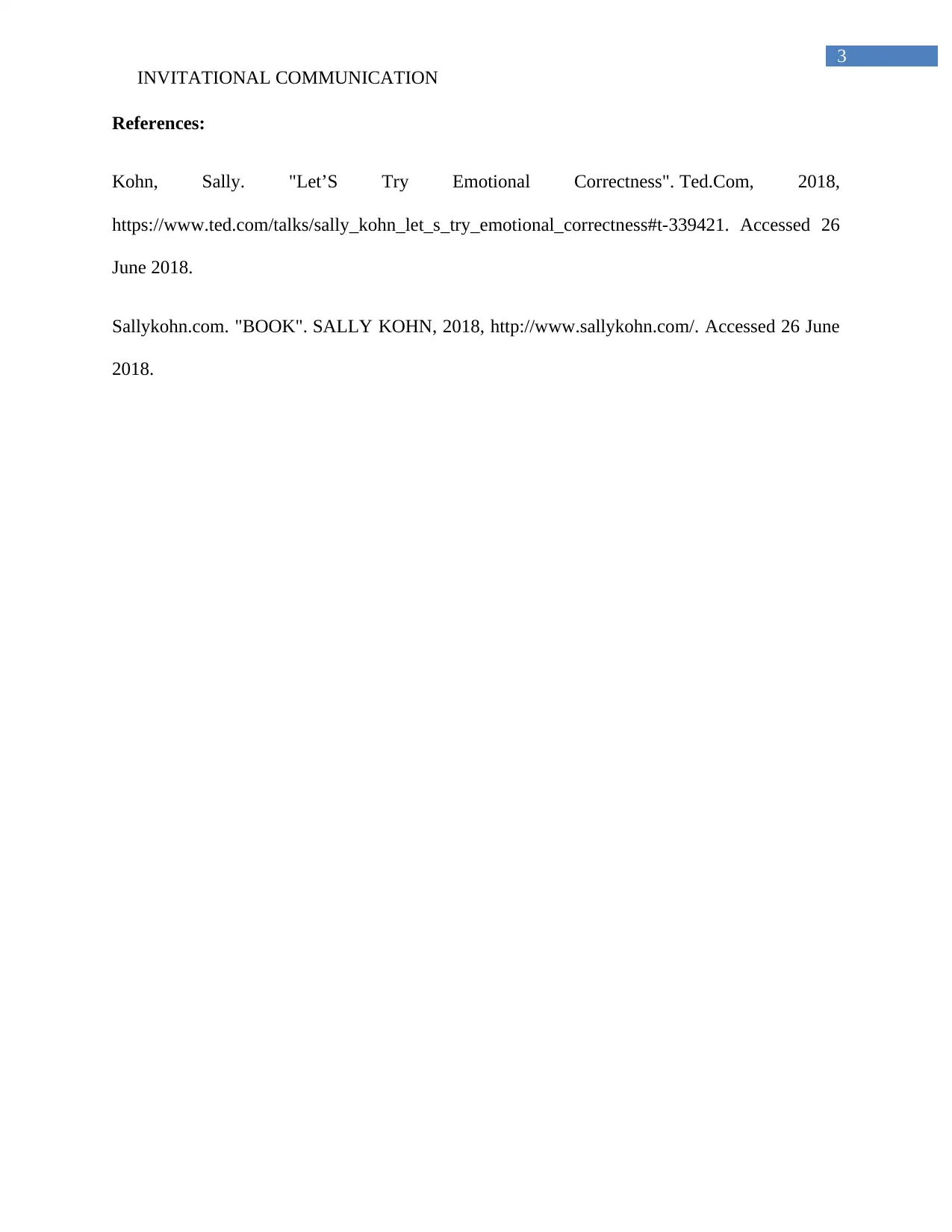COM 102 Assignment: Exploring Invitational Communication in TED Talk
VerifiedAdded on 2023/06/10
|4
|647
|130
Homework Assignment
AI Summary
This assignment analyzes Sally Kohn's TED Talk on "emotional correctness" and its connection to invitational communication. The analysis explores how Kohn effectively uses invitational communication to engage with those who disagree with her, emphasizing the importance of emotional correctness, compassion, and creating a supportive climate for civil dialogue. The assignment further discusses strategies to enhance invitational communication, such as active listening, respectful responses, and avoiding language that may offend or alienate others. It highlights the significance of valuing diverse perspectives to foster open and safe two-way communication. The assignment references Kohn's TED Talk and her website to support the analysis and provide context for understanding invitational communication in practice. Desklib provides access to this assignment and many more to aid students in their academic journey.
1 out of 4











![[object Object]](/_next/static/media/star-bottom.7253800d.svg)